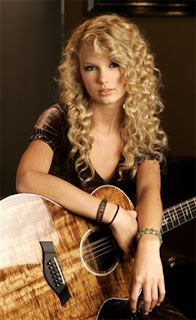
Believe it or not the first country music recording session in history took place just 88 years ago although the musical genre had much deeper roots. In 2007 country music hit a peak in album sales which fell off the chart in 2008 when sales dropped 24%. Did this signal a death knell for the industry? Hardly.
But it did signal that once again it is time for country music to rediscover itself so it can be discovered again by the people of America. As sales were plummeting in 2008 there was a glimmer of hope with Taylor Swift, the new kid on the block, selling four million albums.
There are a lot of complications facing the country industry just like many other industries. Greed has been a dominant force. As people get more sophisticated and the Internet more accessible and more powerful our world has changed. Newspapers are rapidly becoming a dinosaur of the past as the publishers forgot about journalistic integrity and became servants to the advertisers.

Television and radio stations and networks face the same dilemma as Internet choices for news, entertainment and movies caused traditional stations to increase ad rates and frequency to the point the public got fed up. Formula TV shows and radio music came to dominate the airways and quite frankly, people know better and expect more from the industries.
Just a couple of years ago the major record labels paid over $35 million in fines for the newest form of payola to radio stations and 600 stations have been under investigation for taking the bribes. Does that sound like a formula for a healthy industry?
But worst of all the massive mergers and acquisitions in the radio industry have left us with a vast number of people-less radio stations as computers send pre-recorded play lists to their automated network affiliates meaning there is no chance for relating to a local audience which is what made radio popular in the first place. When greed dominates destruction is not far behind.
Radio managers are under pressure from advertisers to play certain types of songs because holding the audience is all about big bucks. Thus the top forty have little relationship to consumer desires nor to the quality of the music but simply to the latest fad on the air. When people have no choice they find a new way to get control and that way is the Internet.

So far the Internet has provided the creative and experimental pool of talent shunned by the record labels and radio stations and the Internet set in motion the practice of giving away music to get people to buy music. The Internet also did what the labels refused to do which is price single records so people could afford them like in the 1960's and thus the iPod generation and music downloads was launched.
Think about it. The albums being released by labels contained maybe one or two hits and a bunch of junk yet were priced in the $12.99 to $15.99 range, an equivalent to selling singles for $1.29 TO $1.59 except you had to buy every single, good, bad or otherwise on the album to get the one song you wanted. The record labels gave away the market to Apple and their iPod who priced a single song at .99 cents and you only paid for what you wanted. Even more, the Internet allowed you to sample the songs and see videos.
Duh...
So what does this have to do with our country kid, Taylor Swift? Right now she is the dominant new face in the music world and Taylor has become a superstar in the world of pop as well as country. I mentioned she sold more albums last year than any artist in any genre. Taylor fought her way up through the country music industry to make it unlike stars such as Carrie Underwood who was the product of the TV sensation American Idol demonstrating that in spite of the collapse of the broadcast industry there are still ways to become known overnight. Most significant, neither was a product of the controlling force in music and radio, the major record labels.

Taylor Swift belies her age, beauty and perceived vulnerability with a wisdom and sense of adventure not seen in decades in the industry. She took the hard route from a small town in Pennsylvania to the studios of Nashville thanks to her own determination and the dedication of her mother. She spent two years working with song writers in Nashville after being the youngest writer ever signed by Sony at just 14 years of age. She peddled demos to major and independent labels constantly on her own.
When she was performing at a writers showcase at the legendary Bluebird Cafe she was spotted by Scott Borchetta who was considering forming a new record label, Big Machine Records. She became the first and most successful artist of the label after turning down an offer from a major label that refused to let her sing her own songs.
Now, that brings up one of the many flaws in the Nashville scene. Greed has become such a dominant force that there is a practice that made a mockery of what used to be a good Nashville thing. Once upon a time there was really a style of collective song writing where several people would contribute to the development of a new song. This collaboration technique brought many great minds and talents together.
But somewhere along the way the industry got lazy and greedy and the publishing rights and song writing rights that used to go to the writer were taken away if they wanted their record to be used. Co-writing and publishing credits and royalties were demanded as a price for being on the record and still are being demanded to this day whether the co-writer makes any significant contribution to the creative work or not. It is a form of legal corruption that has left many a talent the victim.

Another corrupt practice that flourished was hiring A&R people as consultants when submitting demos to the major labels including their own. This conflict of interest was no less disgusting than the payola being undertaken by the labels and stations.
Taylor did not wait for things to happen as at age 15 she launched her career by becoming the most successful country artist to use the Internet and MySpace to introduce herself to the world. She now has over 230 million plays on her web site and that was critical to her success. Apparently young Taylor Swift was not seduced or caught up in the world of Nashville and major label practices and she joined forces with Scott at Big Machine Records to put them on the map.
Every step of the way she defied the odds, stayed free of the traps and preserved her own integrity as she exploded to the top of the charts. By all standards this curly haired country chick should be classified as one of the modern country outlaws for breaking the mold like Willie Nelson, Waylon Jennings and Jesse Colter did nearly 50 years earlier. Fed up with the Nashville establishment, they did their own thing.
If Dolly Parton and Reba McEntire have been the innovators and early rebels of contemporary country music then young Taylor Swift is their new standard bearer and should be the poster girl of the country music industry. All three have refused to give up to the temptations of formula music, the conventions of major labels and the control over artistic creativity by the labels and producers.
To survive country music always has to change when it becomes stagnate. From the old time music at the beginning of the 20th century hillbilly became hillbilly boogie then bluegrass. Boogie, honky tonk, blues, singing cowboys and gospel all became elements of country music as it evolved. Once it was called folk then country and country western.
Elvis ushered in rockabilly which spawned Buddy Holly's Lubbock Sound. Ray Charles introduced country soul while out west Bob Wills and Lefty Frizell merged honky tonk and western swing and brought us the Bakersfield Sound. After the British invasion the Nashville Sound merged with rock 'n roll to give us another new genre called Country Rock with The Byrds, The Marshall Tucker Band, The Allman Brothers and The Eagles.
The Country Outlaws kept it growing as Country Rock and Country Pop traded leading roles as stars like Dolly Parton, Rosanne Cash, Linda Ronstadt, Juice Newton, Alabama, Hank Williams, Jr., Brooks and Dunn, Garth Brooks, Dwight Yoakum, Shania Twain, Faith Hill and Keith Urban kept expanding the genre by bringing it back to rock. At the same time Olivia Newton John and John Denver were folding Country Pop into the cross over arena for country stars.
Today exceptional stars remain extremely powerful. Last year six of the top ten artists on radio were diverse country stars. With Rascal Flatts 2nd, Toby Keith 3rd, George Straight 5th, Tim McGraw 6th, Taylor Swift 8th and Alan Jackson 9th country music dominated the radio airways. Add to them Kenny Chesney, Brad Paisley, Sugarland, Keith Urban, Carrie Underwood and Faith Hill with their concert success and you find an industry with potential to make the changes necessary to survive.
You see, country music remains strong when it is vital, when it is creative, when it pioneers new sounds and when it is relevant. Taylor Swift now stands as a young but seasoned survivor who can once again breathe new life into the industry and help lead the natural change in the genre as worn out record labels and radio give way to the new technologies and techniques of the future. Four years ago a 15 year old kid created a web site on MySpace that has now produced over 230 million plays of her music. At just 19 she is a pioneer of the future of country music.